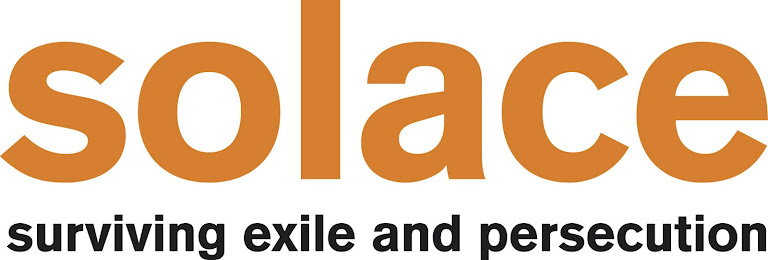
When Mbole came to the UK on 18 February 2000, he was hoping that the hell he had been through in the Congo was over and he could start a new life, free of worry and persecution. But it was not to be. When he died suddenly twelve years later on 10 February, 2012, he was still an asylum seeker waiting for his umpteenth appeal against deportation to the Congo, where all his Congolese friends and Mbole himself knew that he would not survive for long.
Most of the last two year’s of Mbole’s life were spent in detention centres, not because he had committed any crime, but because the Home Office were determined to deport him. Mbole and his friends and allies were equally determined to prevent that from happening because they all understood that being sent back to the Congo was to all intents and purposes an outsourced death sentence.
The Congolese authorities take a particularly dim view of Congolese nationals deported from the UK. Many of them are tracked as soon as they arrive at the airport and then picked up by the military and dumped in jails where they are tortured and killed. Mbole understood that this was the fate in store for him if he lost his right to remain in the UK.
Mbole escaped from the Congo in 2000 after his entire family, including his parents, wife and two children, were all killed because of his father’s political involvement with a Rwandan group. Mbole was kept alive so he could be incarcerated in jail and tortured to extract information from him.
Months of torture left their scars on Mbole, both physically and mentally. He suffered from chronic back pain and his leg never fully recovered after he was stabbed in jail. His body had all the signs of being tortured and his mind was clearly troubled by all of his experiences.
Like many victims of torture and persecution, Mbole suffered from memory loss which was both a blessing and a curse. When he first sought asylum in the UK, the Home Office did not believe his story of persecution and torture. Immigration judges took the view that he was not a ‘credible witness’. They dismissed a medical report by an expert, which added weight to his claims that he had been tortured.
I first met Mbole at Solace in 2008 after he had recently arrived in Leeds, having spent several months in prison in Scotland. He told me what had happened to him and why he needed Solace to help him. He showed me the holes in his body and arms.
In the three and a half years I knew Mbole, he was detained four times, for months at a time, while the Home Office tried and failed to deport him. On each occasion, his solicitor’s submitted a bail application on the basis that he had committed no crime and was unlikely to abscond. ‘Where would I run away to?’ he asked me, shrugging his shoulders.
Mbole was the only client at Solace who I went to court with and acted as a surety, not just once, but four times. On one occasion I was asked by the judge why I was prepared to risk £500 as a surety for Mbole. I told the judge that when I first met Mbole, I was taken aback by the horrors that he had lived through and that he was being punished for no reason.
Mbole was a kind, gentle man, who, when he had the opportunity, liked to go out of his way to help other people. He was a regular church goer with a strong faith, who also worked at Oxfam as a volunteer. Whenever anyone helped Mbole or showed him some kindness he always said ‘God Bless You’, which included a judge on one occasion who had just ordered his release from detention.
Mbole was easily recognisable around town and on the bus with his colourful hats and clothes. At one of his many court appearances I suggested to him that it might not be a good idea to wear the hat with the colourful flowers. How about the red flowery shirt with the brown leather tie? No, not really a good idea, Mbole.
Mbole was glad that 2011 was over and he looked forward to a fresh start in 2012. His immigration case was awaiting a decision in the High Court – the last chance saloon. We still don’t know whether he would have been successful or not, but at least in the last few weeks he was feeling hopeful.
The last third of Mbole’s life was one of relentless persecution, either by the Congolese authorities or the UK asylum system that never believed him. In the end, aged forty four, Mbole’s body was ground down by all the adversity he faced with the full power of the State lined up against him for years on end. But he did score one victory. They never succeeded in deporting him.
God bless you, Mbole, and may you now rest in peace.






